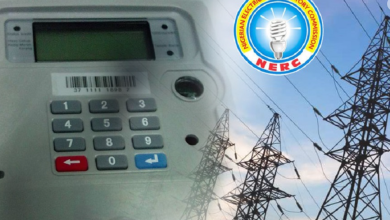Nigeria Customs Waives 4% FOB Levy on Key Industrial Imports
Nigeria Customs has suspended the four per cent levy on key imports to support manufacturers.
The relief covers raw materials, machinery and spare parts, boosting aviation, healthcare and industrial growth.
The Nigeria Customs Service (NCS) has rolled out major relief measures aimed at supporting local manufacturers and strategic sectors of the economy, announcing that raw materials, machinery, and spare parts will no longer attract the four per cent Free on Board (FOB) levy.
This new policy was disclosed in a joint statement issued on Friday by the Comptroller-General of Customs, Adewale Adeniyi, and the President of the Manufacturers Association of Nigeria (MAN), Francis Meshioye. The announcement came after a high-level meeting between the two organizations in Ikeja, Lagos, to review how the levy affected industrial imports.
According to the statement, the exemptions were approved after consultations with the Minister of Finance and the Coordinating Minister of the Economy. The relief covers vital inputs needed for manufacturing, aviation and healthcare services.
Among the beneficiaries are importers of aircraft spare parts, as well as companies bringing in raw materials, equipment and spare parts listed under Chapters 98 and 99 of the Customs Tariff. The statement advised manufacturers already captured under these chapters to apply for pre-release of their consignments to avoid demurrage fees.
The document further noted that manufacturers whose materials and equipment are not yet listed under Chapters 98 and 99 would be brought on board quickly to enable them to benefit from the waiver. To achieve this, MAN, NCS and the Federal Ministry of Finance will launch a tripartite consultation to work out the onboarding process without delay.
Manufacturers who have already paid the 4 per cent levy but are yet to be listed under the tariff chapters will have their payments credited to their accounts for future customs transactions once the onboarding is complete.
The statement also clarified that the exemption extends to government projects holding Import Duty Exemption Certificates, goods imported for humanitarian or emergency purposes, and items under the Presidential Initiative designed to expand Nigeria’s healthcare value chains.
The NCS stressed that these steps demonstrate its commitment to easing business costs for critical industries while still fulfilling its revenue obligations. It added that further trade facilitation initiatives are underway, such as creating one-stop-shop frameworks to streamline regulatory approvals, reducing unnecessary checkpoints, and adopting digital systems to speed up cargo clearance.
The service is also introducing technology-driven solutions for real-time customs processing, automated risk assessments to reduce compliance costs for law-abiding importers, and a more integrated approach to monitoring trade without stifling business.
MAN welcomed the measures, especially the Authorized Economic Operator scheme, which grants trusted traders faster clearance privileges. The association, however, called for clearer guidelines on how manufacturers can qualify for the program to broaden participation.
Both organizations agreed to set up a formal consultation mechanism to allow constant dialogue on customs policies, early engagement on new initiatives, and periodic review meetings to track progress and improve collaboration.



